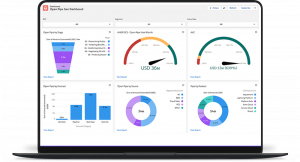In this day and age, cash fuels growth and progress. Whether you’re a freelancer, a small-business owner, or a budding entrepreneur, getting a loan can help you meet your goals and achieve your potential. But before a lending institution can give you the funding you need, they have to carefully examine you and your business to check if you’re a viable borrower.
On a personal level, lenders check your credit score, debt-to-income ratio, assets, and liabilities. They’ll also check your business’s history, balance sheet, revenues, and prospects. In most cases, banks will also ask for collateral as a precautionary measure. Most personal and business loans are only accessible to people with excellent financial history. However, some financial instruments have less restrictive requirements, such as bad credit personal loans.
While offering your assets as collateral can get you approved for a personal or business loan, there are a few things you should bear in mind to protect yourself and your business.
1. Know what your assets are worth
Lending institutions tend to undervalue a borrower’s assets during the appraisal stage. If the borrower defaults on their loans, the lender has to pay for the costs of requisition, finding a buyer, and selling it.
One common error that people make when it comes to collateral is they tend to overstate the value of their assets. It’s usually an unintended mistake, however, since borrowers take into consideration how much they paid for and invested into the property. Banks, on the other hand, only look at the prevailing market price of the asset.
If you’re unsure about the current value of your property, you might want to hire a third-party appraiser to give you an idea of how the lender will value your asset. You also need to maintain detailed records of your assets. Banks reward borrowers with meticulous recordkeeping, and it will also simplify your loan application.
2. Know what assets can be used as collateral
Most collateral fall under two categories: assets that you fully own and assets with a lien. If you have a loan against a property, such as a vehicle that you still have to make monthly payments on, the bank will be able to recoup their losses by negotiating with the asset’s lender and requisitioning the title.
The best kind of asset to put up for collateral is one with a title, and most banks will only agree to a loan if you can produce a title for your assets. Real estate and vehicles are two of the most common types of collateral, but you can also use construction equipment and watercraft if you have a title.
 3. Know what you’re getting yourself into
3. Know what you’re getting yourself into
When you accept a loan using your assets as collateral, you have to understand that you will lose your assets if you default on the loan. Before agreeing to a loan’s terms and conditions, you might want to talk to your lawyer or financial advisor to assess the risks of possibly losing an asset. If it’s something you can’t afford to lose, you might want to consider other options.
These pointers will help you better understand the risks of using collateral to secure a loan. If a collateral-based loan isn’t for you, you might want to explore alternative avenues of obtaining funding. It could be by selling equity, looking for investors, or even investing in financial instruments.





